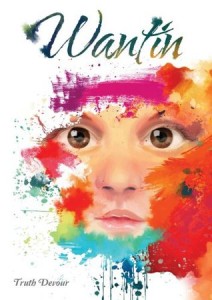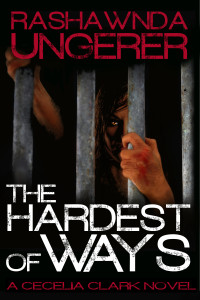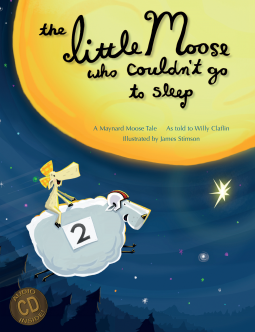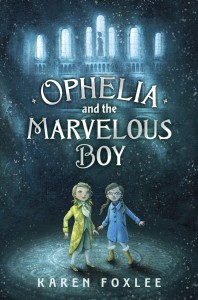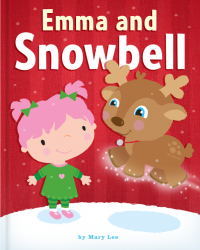Wantin. Truth Devour. 2013. Publicious Self-Publishing. 189 pages. [Source: ARC provided courtesy of Goodreads First Reads program.] I find it refreshing to go on a journey with a narrator, watching their life unfold in front of them and follow their thoughts and actions as they process what it means in the grand scheme of their life. Wantin is a spectacular example of this, as it follows Talia as she embarks upon womanhood. What intrigued me most about Wantin was the book itself. The book is white with a face being revealed from behind a splattering of vibrant colors. The face appears to be that of a young girl looking back at the world. I was curious before reading, wanting to know the symbolism behind it. After reading it, however, I find that it is a foreshadowing of Talia’s experiences and is extremely fitting. Her story is absolutely one in which you begin by seeing things from the eyes of an inexperienced girl; however, as Talia’s journey continues, what she sees is enhanced by her growth.
The Hardest of Ways. Rashawnda Ungerer. 2015. 629 pages [Source: Advance copy provided courtesy of author.] What happens when you finally realize all the ways you’ve been stabbed in the back (sometimes literally) over the course of a lifetime? Do you get mad? Probably. Do you get even? Without a question. Such is the story of Cecelia Clark and her apparent guardian angel, Gordon Hale. These two cross paths accidentally, but a series of very unfortunate events thrust them back into each other’s respective paths, forcing them to learn more about one another, come to terms with their painful upbringings and rely on each other to eventually face their demons head-on. The Hardest of Ways is a the debut novel from author Rashawnda Ungerer, and to be simple, it’s a great start. Ungerer weaves an intricate story of new and old romances, not-so organized crime, and a ridiculous amount of killing, doing so in a way I didn’t expect, but found enticing all the same.
The Little Moose Who Couldn’t Go to Sleep. Willy Claflin. James Stinson, ill. 2014. 36 pages. August House. [Source: ARC provided courtesy of NetGalley.] A book “as told to” a human by a moose that has an accompanying CD and needs a glossary? That is just enough of a departure from the norm for me to check it out. From the minute we dove in, I knew this book was a treat. The foreword is cute. I like the idea of the story and way it’s told being authentic to the person (or animal) who told it. I think that sets up a good precedent for readers who may venture into other cultures’ stories (think Canterbury Tales). I would have loved to heard the accompanying CD, but I think you get a fairly good feel for it from the story.
Ophelia and the Marvelous Boy. Karen Foxlee. 2014. Knopf Books [Source: ARC provide courtesy of NetGalley] Ophelia and the Marvelous Boy came my way as a pre-approved book on NetGalley. I’d never heard of it and I wasn’t sure what to make of it, but I absolutely loved reading this. It’s a substantial read and its plot and style are engaging throughout. While I found the plot enjoyable, the themes in the book were mature enough that I could appreciate them as an adult. The story follows Ophelia and her older sister Alice while they accompany their father Malcolm as he facilitates the opening of an expansive sword exhibit at a museum. All are still coping with the death of the girls’ mother, Susan, three months prior. Ophelia is a timid girl who views everything through a scientific lens, which makes it so difficult for her to process the experience she has in the museum after she finds the Marvelous Boy in a locked closet.
Emma and Snowbell. 2013. 28 pages. Sweet Lemon Books. [Source: ARC provided courtesy of StoryCartel.] In a nutshell, this book is just in time for the holiday season, and if you have a child who loves to sing, this will be great family fun! Emma and Snowbell is a simple story about a girl and her reindeer. She’s stuck in the snow, and without a sled to get around, she picks a live ride instead. They soar throughout town, having fun with her classmates along the way. The book can be read, but is best when sung to the tune of “Jingle Bells.”

